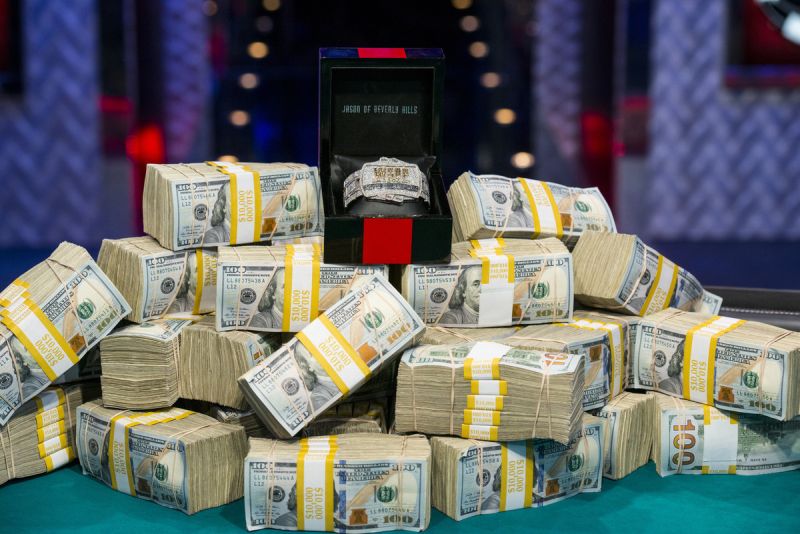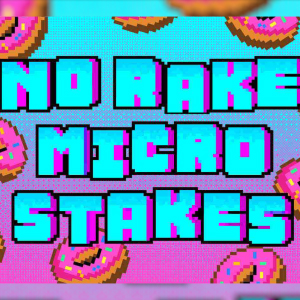How to Win at Poker Without Ever Playing
9 years ago
29 Jun
(Photo: Thewhistlernews.com)
There is a way you can win at poker without even playing. Can you imagine: no bad beats, no table talk, no trolls berating you for making a bad play, and being able to make money without any effort at all. Of course things are never as straightforward as they seem, but read on, it does happen and it happens in poker.
Poker is now a global sport where there are millions of dollars up for grabs at any one time. Wherever there is money, there is opportunity. We have discussed in other articles that the only way you can win money at poker is by having enough funds to buy into the games in the first place. Once you sit down, whether at a cash or tournament table, only then do you have a chance at winning the prizes on offer. Poker players must be in it to win it, come what may or they have no chance of making any money.
So how can you win at poker without playing? By staking players, that’s how.
With even the best will in the world and utilizing stringent bankroll management strategy, players can find themselves out of the games due to lack of funds. Variance, bad play, and tough playing conditions affect everyone, but being the resourceful creatures we are, we do not let a simple matter of having few or no funds stop us from playing poker. Say hello to the stake horse.
A stake horse, or backer, is a wealthy person who will pay for the poker player to play and take an agreed percentage of any winnings. The risk for the backer is that the player does not win any money and they lose the buy-in. The opportunity is they can take advantage of the demand for assistance and make some easy money.

How Does This Work?
Stakes are not risk free for the player or the backer. The player must consider how they are going to repay the backer and for the backer, there are a number of ways this risk can be mitigated. The exact nature of the agreement is decided between the staker and their player and if it goes wrong, the player can find themselves ostracized (or worse) by the poker community and their reputation soon suffers. Threads on online poker forums are commonplace for players seen to have betrayed the trust of backers. It is very much frowned upon.
A common arrangement sees players play on terms known as “makeup”. This means that the backer agrees to stake a player for a certain period of time usually up to a certain limit of buy-ins. All winnings they generate are sent to the backer until they have “made up” the amount of money spent so far in buy-ins. Players keep the agreed percentage beyond the buy-ins.
Here is an example. A player agrees to play on makeup and will keep 50% of any winnings. The backer buys them into $100,000 worth of tournaments and they cash for $150,000 in the final tournament. The backer gets their buy-ins back, plus half of the remaining $50,000 profit. Once the winnings were divided, the player would get $25,000 and the backer $125,000 ($100,000 buy-ins plus 50% of the remaining $50,000 profit). This might appear one-sided, but at no point had the player made any outlay towards the $100,000 the backer had spent, so it was the staker who was down a lot of money.
Other common arrangements are where players sell percentages of themselves but the backers do not get the money back. There are many websites such as the PokerVIP Marketplace that match players looking to sell percentages of themselves with players that want to buy pieces of players in a tournament. The site helps keep everything right too, but often private arrangements are made between larger backers and players.
The Opportunity
For the stake horse, they may not be the best poker player but they can access the equity a more experienced and able poker player has by staking part or all of their buy-in. They will have researched how good the player is in the variation of poker they are staking them for, how often they have been staked in the past, and their results when staked. This is important as some players take it easy if their focus is not maintained by risking their own money. The backer will also know the reputation of a player to keep to an agreement even if things go wrong.
It can be lucrative. If anyone had the opportunity to stake Daniel Negreanu in a poker tournament, most professional stake horses would jump at the chance as Daniel is a proven winner over the long term. Their investments would have made a great return over time. Unfortunately for backers, Daniel wins enough where he does not need a backer!

The Risks
Staking players in a gambling setting is risky. This is why the deals are often weighted in favor of the stake horse rather than the player. The first question the backer must ask is why the player needs a stake in the first place. Are they simply a bad player who is hemorrhaging money left, right, and center, or is there another reason? If they are a losing player, the stake horse might not be interested. They need to expect a return of their money. Not every player is worthy of a stake.
A player might ask for a stake if they have lost their money losing in the pit games at a casino. This leak does not diminish the player's poker ability and may present an opportunity for a backer to get a slice of their expected winnings. The backer would need to make sure they get the player to the table by going with them to buy into the tournament, instead of risking giving them money which could be lost at craps or roulette on route and then they would need to intercept them before they head off to the pits if they cashed! They would also need to weigh up how likely they are to be able to repay the losses.
Sometimes very good and responsible players just want to spread their risk and buy into a tournament for 50% of the full buy-in. Most players are not adequately bankrolled for playing a $10,000 buy in poker tournament, but that does not stop players wanting to play in these big events to chase the life changing payouts.
Some players might just want to take a shot and are willing to give up 50% of their potential profits in return for the opportunity to play at a higher level than their current bankroll allows. The backer must assess the reasons for the stake being required and factor that into the risk of the stake. They can then decide if the stake is a good idea or not.
Staking players can be a novel way for a person with spare cash to collect profits from players with a good chance of winning. Knowledge is power and like any other form of investment, there are upsides and downsides. Players will always need stakes and backers will always have an eye for where they can make money, so if you are around poker tournaments for any length of time you will see these arrangements being made from the good, the bad, to the downright ugly. If you are in a position to do so, you can use your judgement to decide whether or not to get involved yourself.






Comments
You need to be logged in to post a new comment